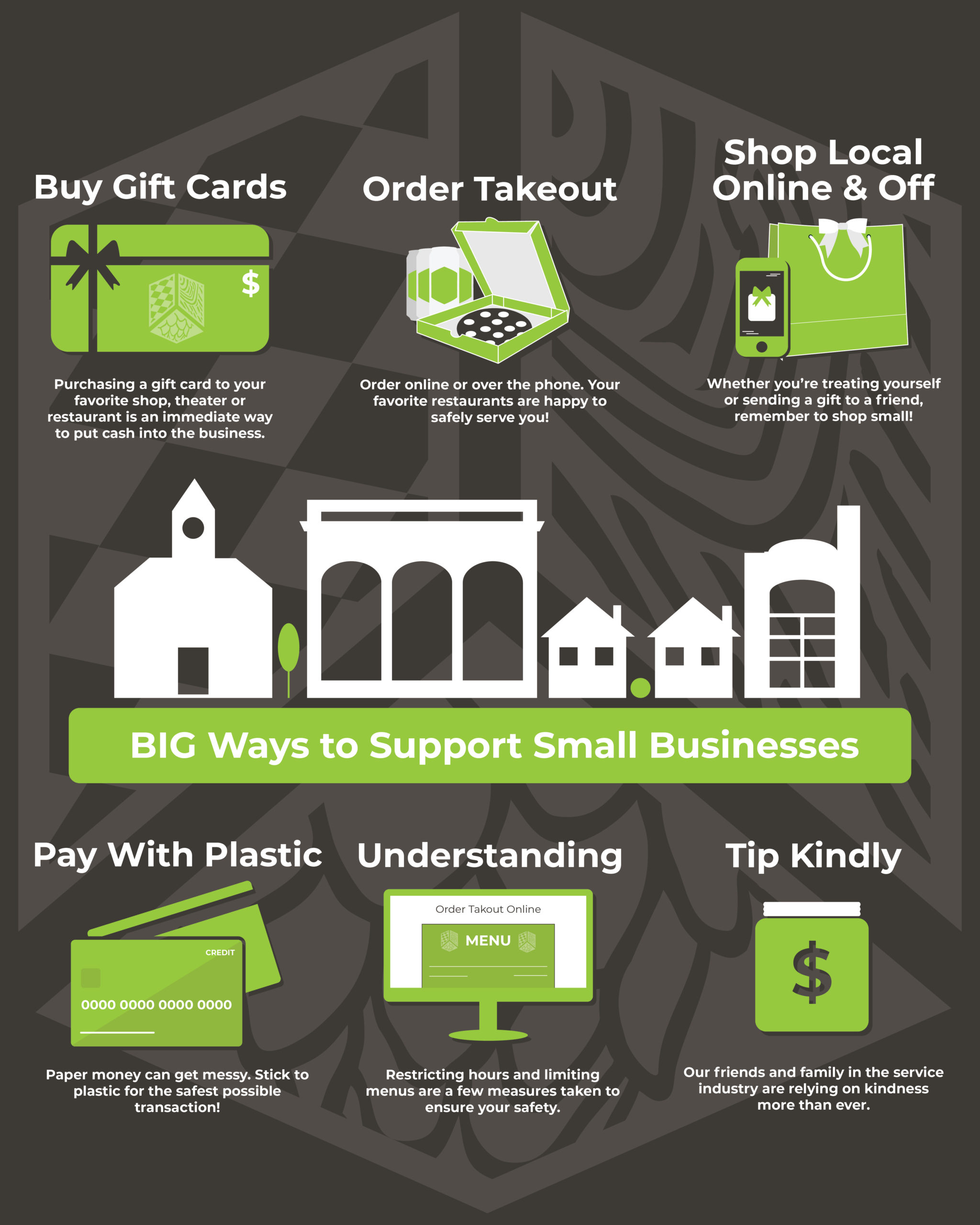In the last several weeks, the coronavirus and Covid-19 have left businesses reeling. Breweries, beer bars, and shops are stuck in a holding pattern as each navigates the pandemic’s arrival, and indeed, their own survival.
Already, the effects of Covid-19 on the beer industry have been staggering.
Annual beer industry events, including the Brewers Association’s Craft Brewers Conference & BrewExpo America and World Beer Cup, combined comprising the largest industry gathering in the country, have been cancelled. The National Beer Wholesalers Association (NBWA), representing beer distributors, called off its annual legistlative conference. And the American Homebrewers Association’s National Homebrewers Competition, which draws hopeful amateur brewers each year, has been postponed.
Additional consumer-facing festivals with national, and even international, appeal — Cigar City’s Hunahpu’s Day, Firestone Walker’s Firestone Walker Invitational Beer Fest (FWIBF), Pike Brewing’s Women in Beer, a tasting event and Planned Parenthood benefit — are likewise off the books.
Adding to Covid-19’s financial, social, and spiritual blows are the bottom-line challenges as craft beer production slows and taprooms close with no new beginning in sight.
“These are incredibly challenging times, easily the hardest week in our company history,” Jack Hendler, founder of Jacks Abby and Springdale breweries in Framingham, Mass., tells VinePair. “State officials have made the decision to close all bars and restaurants for on-premise consumption in the interest of public health and it’s the right thing to do, but closing our taprooms are a huge hit on our business.”
Hendler continues, “We have had to adapt our business model to takeout, curbside pickup, and delivery overnight. … It isn’t easy, but we are all doing everything we can to fight through this.”
Across the state and country, many small breweries have announced similar plans. In Massachusetts, Boston’s Samuel Adams and Tree House Brewing Co. announced indefinite closures of their taprooms. In California, Sierra Nevada has cancelled all guest services. Russian River, whose Santa Rosa and Windsor locations draw tourism to their respective cities year-round, furloughed about 175 staff members — 90 percent of its workforce.
Sadly eclipsing this figure, Portland, Ore.’s McMenamins brewery and hotel chain laid off nearly 3,000 employees across 55 of its 56 locations in Oregon and Washington State, leaving only its Portland bottle shop open.
“These are the hardest decisions and conversations we have ever had to make,” Natalie Cilurzo, co-founder of Russian River, told Brewbound on Tuesday. “The situation changes every day, and each day we have to add to the list of furloughed employees.”
For many small businesses, the hardest part is not knowing what’s ahead. “We are in uncharted territories,” Hendler says. “It feels like we’re making two business plans a day as the situation is ever-evolving.”
With NYC restaurants and bars closing down by exec order tomorrow, we will be working furiously to realign our staffing and production to the new reality while trying to minimize impact to our people. It's not pretty
— Laura Dierks (@LLDierks) March 16, 2020
In New York, Brooklyn Brewery at first announced cashless sales, cleaning procedures, and compostable plastic cups, then later announced its tasting room is closed indefinitely. “Our online store is open for merch sales, but right now we don’t have any delivery or to-go options from our Williamsburg home,” Brooklyn Brewery’s Tim Rozmus told VinePair. Interboro Spirits & Ales, in nearby East Williamsburg, Brooklyn, prepared for changes to staffing, production, and taproom service. Throughout the borough, Threes Brewing, Kings County Brewers Collective (KCBC), and Grimm Artisanal Ales shifted to digital delivery services such as Caviar; while Finback Brewery and Big Alice Brewing, both operating locations in Brooklyn and Queens, remained open for to-go sales, growler fills, and gift cards.
The Silver (Aluminum) Lining: Beer Retail
Indeed, an unprecedented uptick in beer sales online and at local retailers has served as somewhat of a silver lining for some beer industry members.
Across what feels like an apocalyptic landscape, beer sales have surged on sites like Drizly, which, on Monday, reported its gross merchandise volume was up 500 percent year-over-year that day alone. “Drizly is also seeing that consumers are placing larger orders, now spending on average 50 percent more than normal on Drizly, which indicates a ‘stock up’ mentality,” the company told Beer Business Daily.
One Craft Beer Cellar franchisee told me the business was “extremely busy in Belmont [Massachusetts], with schools closed and parents working from home. Online orders and deliveries are up, as people take advantage of not having to come to the store.”
Brewer Survey Says: Results ‘Aren’t Pretty’
But it would be negligent, if not impossible, to ignore the immense setbacks that lie ahead. On Wednesday, Brewers Association chief economist Bart Watson shared insights from a survey that gauges initial impacts of Covid-19 on small breweries across the country. At press time, more than 600 breweries responded, painting a limited but striking picture of what small breweries are experiencing nationwide.
Among brewery respondents, 90 percent said Covid-19 has impacted onsite sales. About 59 percent said the virus has affected distributor orders. And, come April, 95 percent expect to see year-over-year sales losses.
Currently at the brewery – we have one customer pic.twitter.com/7DrQAonxlJ
— Em Sauter (@PintsandPanels) March 14, 2020
Big Beer, Big Losses
Small breweries and businesses will without question suffer the most. But global brewing companies, while better-equipped to weather the storm, are already seeing stocks plummet — even to recession levels.
On Wednesday morning, VinePair charted publicly traded beer, wine, and spirits producers to determine how their stocks are faring year-to-date compared to the S&P 500. Anheuser-Busch InBev (BUD) took the steepest hit.
“AB InBev, which just drew down a massive credit line, has clearly suffered the most,” Joshua Malin, VinePair president and co-founder, told me. “This makes sense given how much effort they have put into pivoting the future of their business toward Asia in recent years.”
And while Boston Beer actually outperformed the S&P 500, this is likely due to its Truly Hard Seltzer brand, which is the second-best-selling brand in the explosive hard seltzer category, behind White Claw. (White Claw parent, Mark Anthony Group, is a private company, Malin added.)
International Impact
Of course, the effects of the coronavirus and Covid-19 reach far beyond U.S. borders.
Guinness closed both its Dublin and Baltimore, Md., locations last week. “But it’s bars, pubs [and] restaurants I’m most concerned for. They’re not cash-rich,” Jon Urch, sales director, PNW, Diageo Beer Company USA, told me on Twitter.
In that thread, several beer-industry members shared their struggles. “[The] biggest issue for us is we have had to cancel a very important, six-figure contract, hop selection trip to NZ. Truly gutted about that,” Paul Jones, founder of the U.K.’s Cloudwater Brewing, recently voted one of the 10 best breweries in the world by RateBeer users, said. “It’s near impossible to make contingency plans, but we are trying to prepare for draft sales to plummet.”
Beyond the taproom — which, Jones said, reduced its capacity by 50 percent as of March 14 — is the mental and emotional strain among staff and business associates. “The anxiety and stress in the team, despite us taking early, clear, thought through steps, is palpable. Our worries about customers (we wholesale ~85% of our beer) and the issues they’ll face just compound the pressures we feel right now.”
Miranda Hudson, co-founder of Duration Brewing, a new farmhouse brewery opened in rural Norfolk, England in October 2019, said, “We sell the vast majority of our beer via wholesale while we build a local direct and national online customer base. We have yet to see an adverse impact but we are very much tied to a supply chain.”
How to Help Small Beer Businesses
On Wednesday, Ireland’s White Hag Irish Brewing Co. announced a virtual event via its Facebook page, “possibly the worlds’ first ever online beer launch,” for its Phantom Hazy IPA. It may sound frivolous, but it’s exactly these types of light-hearted efforts that can ensure craft beer culture can sustain. And we, as consumers, are responsible for doing our part to help them survive.
While you’re stocking up on canned soup and toilet paper, consider picking up a 4-pack from a local brewery. I did.
If you’re scrolling through social media feeds while sheltering in place, see if the breweries you’d usually visit are offering contactless deliveries of their beer — and if they are, order it. I did.
And if you’re on lockdown and, for whatever reason, are not feeling up to imbibing, crack open that homebrew kit that’s sat dusty and daunting in the corner since December. By the time it’s finished in four weeks’ time, you might muster up the courage to share it with a roommate — or, better yet, at your first homebrew club meeting after the coronavirus curve subsides.
Covid-19 and its whiplash of effects on the beer businesses are only beginning to be felt, but what’s happening now will absolutely affect the future of these businesses and, ultimately, yours and my consumption of beers and other products from these purveyors. But the beer industry and its community are nothing if not resilient.
Don’t underestimate the power of positive drinking. Stay connected to beer acquaintances through virtual tastings. Start an Instagram story chronicling your socially-distanced beer journey. Or, after you make it through another weary, work-from-home Wednesday, share what you’re drinking with friends and ask them to send what they’re drinking, too.
Last but not least, let brewers, bartenders, and service industry members know you’re thinking of them. Offer to buy their next round —especially if they’re one of the thousands who have lost their jobs. It might not pay their rent, but every little beer helps.
We could all use a little beer, and a little “cheers,” right now.

This story is a part of VP Pro, our free platform and newsletter for drinks industry professionals, covering wine, beer, liquor, and beyond. Sign up for VP Pro now!
